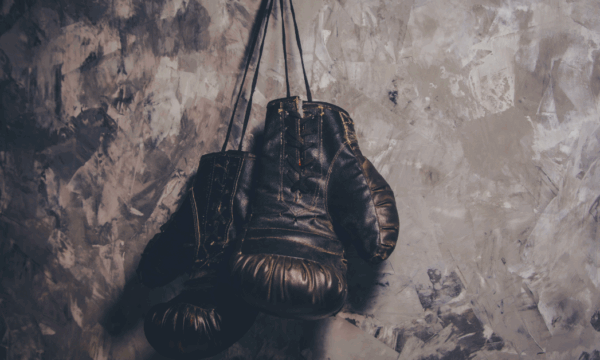Creative relationships need to be built on trust. Especially in terms of shared vision moving with intention in the same direction. They also require mutual uplift. But when outburst of anger mix with unclear leadership roles, even the strongest group dynamics can become distorted.
Recently I experienced a fallout of sorts with a rapper I’d developed a connection with over the last 5 years that’s a decade younger than me. I’m what you might call a hybrid artist. Someone who produces, writes, administrate, and guides the broader creative vision of my business. My goal has always been simple help where I can. Lead only where it’s welcomed. Early on our dynamic flowed naturally. But over time, I noticed a shift.
The rapper seemed to struggle with how others viewed them. They didn’t exactly want to be seen as the leader. Not just in name, but in respect. That kind of pressure the internal disinterest to be the one in charge started to spill over into how they responded to feedback, structure, and conflict. My presence rather than being a support started to feel like a threat to their identity.
They never said it outright, but it became clear in their actions. Ambivalence replaced initiative. Resistance replaced teamwork. Until finally, in a moment charged more by their emotion than the actual situation, they made the call to cut communication. It wasn’t the first time they “kicked me out of the group,” and I’ve come to accept that their reaction had little to do with me and more to do with how they were feeling about themselves.
Before cutting ties, the rapper made it their mission to share a list of what they didn’t like about me. Not to build, but to purge. As if their discomfort had to be offloaded before moving on. It wasn’t about reconciliation. It was about release. About asserting control in the only way they knew how by walking away and assigning blame.
And that’s the paradox in many rappers with anger issues. The real tension isn’t about what’s said, but how they feel about who’s saying it. When someone is already battling self-esteem, leadership anxiety, or comparison, your perspective can feel like judgment. Your guidance can feel like domination. Even if your intent is rooted in wanting to help. Their perception is louder.
I wasn’t upset. Just observant. In moments like that, you realize not everyone is ready to receive what you offer even if it’s what they once welcomed. And while I never raised my voice or responded emotionally, I had to accept that emotional regulation isn’t a shared strength. Not yet at least.
This is why self esteem matters just as much as confidence. Because when you have both you often can serve as emotional anchor in a room. That’s rarely valued or acknowledged. And it’s also why hip hop healing isn’t a luxury it’s a necessity. Our culture won’t grow if our practitioners don’t have the space, language, and guidance to unpack what’s really underneath their outbursts.
Emotional Responsibility Isn’t a Group Project
One of the most liberating truths I’ve come to learn both creatively and personally is that no one else is responsible for regulating your emotions. That weight falls on the individual. Not on the people around them. No matter how tense or uncomfortable a situation may become.
When someone responds with anger, frustration, or resentment, especially in the heat of disagreement. Those reactions reveal more about their internal landscape than the external situation. You might not like someone’s delivery, tone, or approach. You might disagree with their choices or interpretations. But anger is still a response not a universal verdict. The moment it takes over your decision-making or communication, it becomes a mirror of your own emotional state. Not a magnifying glass on the other person’s flaws.
It’s not that people don’t make mistakes. We all do. But if your response is explosive. If you’re inclined to cut ties and lash out. Make permanent decisions from temporary emotions. Then you’re outsourcing your emotional labor to others and expecting them to hold what you haven’t yet handled. That isn’t right. And more importantly, it isn’t sustainable in any meaningful relationship. Be them creative, personal, or professional.
Emotions are valid, but they aren’t always accurate. Just because you feel disrespected doesn’t mean disrespect occurred. Just because you feel judged doesn’t mean someone judged you. Often, it’s old wounds, unresolved stories, and personal insecurities speaking louder than what’s actually being said in the moment.
That’s why emotional regulation is such a foundational part of growth. Especially in creative fields like music where ego, identity, and expression are all deeply entangled. Artists often feel misunderstood, producers often feel undervalued, and both sides can fall into the trap of projecting those feelings onto each other. But healing begins the moment you realize your feelings are your own to sort through. Not someone else’s to validate, manage, or tiptoe around. In that sense, regulating your emotions isn’t just maturity. It’s a sign of respect for your craft, your team mates, and yourself.
Final Thoughts No Names, No Blame Just Lessons
Out of respect for everyone involved, no names will be mentioned. This isn’t about putting anyone on blast or airing grievances in public. From my perspective, there’s no ill will. There’s only reflection and growth. The individuals who were present whether they instigated, co-signed, or simply observed are entitled to their own interpretations, emotions, and conclusions. That’s part of the human experience. And this situation, like many before and many to come, stands as a lesson for all involved.
If my tone, delivery, or message was interpreted as disrespectful, that was never my intention but I fully recognize that intention doesn’t cancel out impact. I take responsibility for that, and I’m learning from it. At the same time, I won’t carry or internalize another man’s anger as if it belongs to me. We all have to face our feelings, regulate them, and move forward with integrity.
What matters most is that we grow. Creatively. Emotionally. Spiritually. Personally. Every fallout can serve as a mirror if we let it. And if we’re truly about personal growth, then we have to be just as willing to own our missteps as we are to assert the truth. Get the gloves.
Justin David




